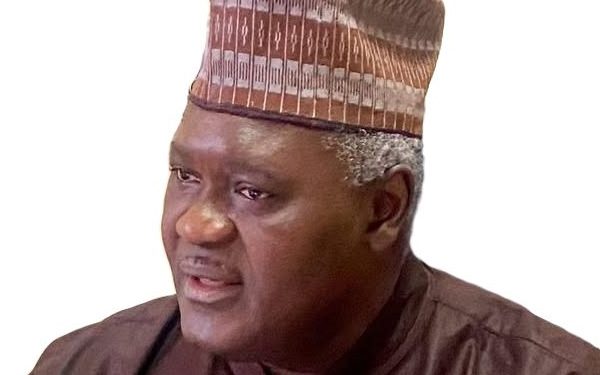By Hassan Osman Kargbo
One of the leading aspirants for the 2026 flagbearer position of the All People’s Congress (APC), Joseph Fitzgerald Kamara (JFK), has held an unusual but symbolic engagement with young people living under the Lumley Bridge in Freetown.
The former Attorney General and Minister of Justice met with drug addicts and vulnerable youths as part of his wider outreach to address one of Sierra Leone’s growing social challenges, which is substance abuse.
During the visit, JFK made it clear that no condition or circumstance would prevent him from engaging with Sierra Leoneans from all walks of life, explaining that leadership must go beyond formal meetings and political rallies, also stressing that true service requires reaching out to those often forgotten by society.
“I don’t care about the conditions in which people find themselves; I must go there and talk to them,” JFK stated. “These young men and women are Sierra Leoneans too, and they deserve someone to listen to them. Drugs are destroying our youths and we all have a responsibility to stop this.”
The engagement, which drew attention from both residents of Lumley and passers-by, focused on the urgent need to tackle drug abuse, particularly the rising spread of synthetic drugs such as kush. JFK called on every Sierra Leonean—parents, community leaders, politicians, religious leaders, and law enforcement agencies—to take a united stance in minimizing, if not completely eradicating, the drug menace.
He emphasized that the future of Sierra Leone rests on the shoulders of its youth, and losing them to addiction means endangering the nation’s progress. According to him, the fight against drugs cannot be left solely in the hands of the government but requires community-wide effort.
“This is a national emergency,” JFK added. “If we fail to save our youths, then we fail to save Sierra Leone. It starts with each of us taking responsibility.”
In an emotional turn during the visit, one of the young drug addicts living under the Lumley Bridge expressed gratitude to JFK for reaching out to them despite their difficult circumstances.
“We thank Mr. Kamara for coming here today. It is not easy for people in his position to think about us, but he has shown us love and concern,” the young man said. He further appealed to his peers to quit drugs, warning them about the dangers of addiction and the harm it brings to their health, families, and future.
The addict also called on leaders and organizations to pay greater attention to those living in neglected areas, stressing that drug users are not beyond redemption but need guidance and opportunities to rebuild their lives.
JFK’s visit under the Lumley Bridge has been widely praised as a bold move that demonstrates his willingness to confront real-life issues affecting ordinary Sierra Leoneans. Political observers note that the gesture goes beyond campaign rhetoric and reflects the kind of people-centered leadership many are yearning for.
As the APC prepares for its 2026 national convention, JFK’s direct engagement with marginalized groups is expected to boost his appeal among grassroots supporters. More importantly, it highlights the urgent national conversation about drug abuse, a crisis that has left countless families in pain and communities in distress.
With the scourge of drugs threatening Sierra Leone’s social fabric, JFK’s message stands as both a call to action and a reminder that leadership must rise to meet the needs of even the most vulnerable citizens.











